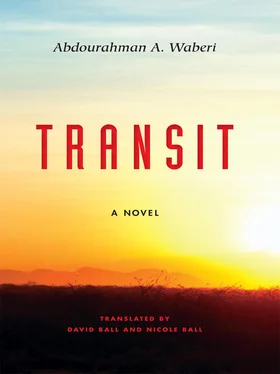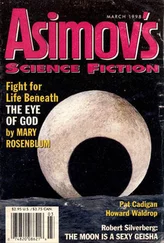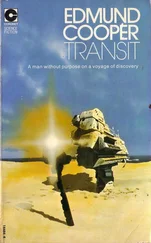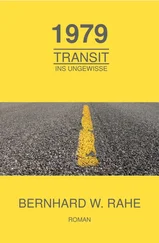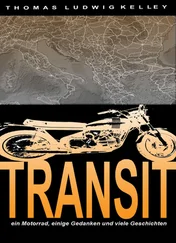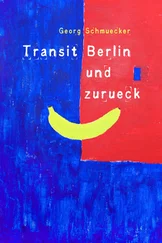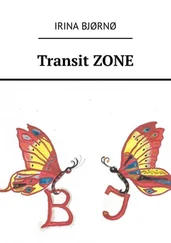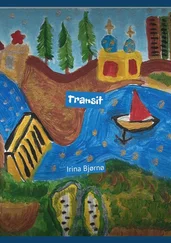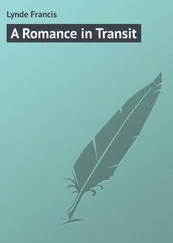Abdourahman Waberi - Transit
Здесь есть возможность читать онлайн «Abdourahman Waberi - Transit» весь текст электронной книги совершенно бесплатно (целиком полную версию без сокращений). В некоторых случаях можно слушать аудио, скачать через торрент в формате fb2 и присутствует краткое содержание. Год выпуска: 0101, Издательство: Indiana University Press, Жанр: Современная проза, на английском языке. Описание произведения, (предисловие) а так же отзывы посетителей доступны на портале библиотеки ЛибКат.
- Название:Transit
- Автор:
- Издательство:Indiana University Press
- Жанр:
- Год:0101
- ISBN:нет данных
- Рейтинг книги:3 / 5. Голосов: 1
-
Избранное:Добавить в избранное
- Отзывы:
-
Ваша оценка:
- 60
- 1
- 2
- 3
- 4
- 5
Transit: краткое содержание, описание и аннотация
Предлагаем к чтению аннотацию, описание, краткое содержание или предисловие (зависит от того, что написал сам автор книги «Transit»). Если вы не нашли необходимую информацию о книге — напишите в комментариях, мы постараемся отыскать её.
Transit — читать онлайн бесплатно полную книгу (весь текст) целиком
Ниже представлен текст книги, разбитый по страницам. Система сохранения места последней прочитанной страницы, позволяет с удобством читать онлайн бесплатно книгу «Transit», без необходимости каждый раз заново искать на чём Вы остановились. Поставьте закладку, и сможете в любой момент перейти на страницу, на которой закончили чтение.
Интервал:
Закладка:
32. ABDO-JULIEN
AT THE CORNER OF Rue d'Athènes and Avenue Clémenceau, the café Chez Abdou is a favorite meeting place where the finest rumors are passed around, not like the flat old news you can find everywhere else. (Note that in this whole business section of the city, as in the rest of it, most streets are named after European cities, like Berne, Rome, Paris, or Berlin. What's really surprising is that no president ever changed them, in fact nobody refers to these ordinary names, streets without a name that word-of-mouth has baptized Café Street, Hindi Barber Street, the street of the Junkmen, etc.) The café is mainly a series of white plastic chairs under the arcades along the sidewalk. Only four of their columns are freshly painted: candy pink for the bottom, sky blue for the top. The customers are free to congregate there according to time of day, affinity, and habit. There they drink very sweet tea with milk and, more rarely, suitably sweetened coffee in long Duralex glasses. You can detect a scent of something unfinished in the air, a certain provisory feeling, like the dream of a real city deferred.
There is no more entertainment like the movies used to be: the main theater, south of the city — Le Paris — was transformed many years ago into the headquarters of an austere, evangelical religious association. The very charismatic Sheikh Artawi and his virulent lieutenant preach there all day long. Fortunately, little open-air booths spring to life once evening has come. Nothing could be simpler; a few broken-down tables under a lamppost, and a whole crowd of people come swarming around the domino players. A more serious clientele of minor civil servants comes to Abdou's to feel the temperature of the city, and a swarm of plainclothes policemen and informers of all kinds slip in among them more easily than a hammerhead shark in the midst of a school of mackerel. Papa doesn't set foot there any more; the petition probably has something to do with that.
Recently, rumors have been going around about the new exterminating angel, the darling of the rabble, Osama bin Laden himself. It seems the authorities are very concerned about the explosion of slogans and graffiti singing the glories and inevitable victory of the Great Bearded One: a gigantic “Long Live Osama” has been scrawled over the wall at the entrance to the public high school for almost three days now. T-shirts bearing his face are proudly exhibited on Place Rimbaud or Place Menelik. Other slogans painted on the walls of the city have been reported, other words of aggressive sympathy in strategic points of the capital. The French military — and more recently the Americans and Germans — will not fail to classify, photograph, and carefully analyze every atom of the wall thus profaned before sending it off to Washington or Berlin for a series of complementary examinations. Battalions of Marines and the soldiers of the Bundeswehr are, in fact, looking for the elusive man of the caves. Would the hyena emerge from the bed of the dried-out wadi, from the belly of the protecting cactus? Every evocation of his name is submerged by a sea of rumors and terrified faces. Reports from some editorialists in New York, on the strength of statements from Pentagon officials, have located him in the nakedness of nearby Somalia. Which more than one native of the country has found astonishing, although they are usually placid and not very impressionable.
During the last presidential elections, the first in the era of the multiparty system, I accompanied Papa early in the morning. There were already a lot of people in front of the polling place. Plainclothes policemen, security agents in their little black cars, easy to spot from far away. A dozen uniformed policemen had the voters stand in two parallel lines and then ushered them into the voting place, normally just an elementary school. There was a lot of electricity in the air, for the neighborhood is known to be openly favorable to the opposition, like all the neighborhoods of the magalla. Informers were pacing back and forth in the schoolyard near the fountain that ordinarily attracts the games and laughter of the students. Policemen gave us scalding looks when we reached the threshold of the voting place. Others were seeing old ladies to the door; they were holding their newly stamped voting card in one hand and a thousand-franc bill in the other, the spoonful of honey after the bitter pill.
33. AWALEH
WHAT CAN ONE SAY about the multitude of djinns that surround us throughout our lives, of the band of frowning demons with heavily wrinkled brows who keep watch on our slightest feelings and impulses, and the trolls throwing us into the depths of disgrace at the first mistake? What can one say about those invisible beings who have one foot in the realm of the visible? What can we make of those nymphs who set monstrous traps for us, capitalizing on our little weaknesses, our occasional blindness; they lure us with fantasies like bathing the body of our lovers in the reflections of the moon, probing everywhere and seeking what can be said in what is impossible to say. How can we avoid awakening the spirits who hibernate in the bottom of our own darkness? Man is a wheezing, crotchety mollusk, dragging himself along on the thread of his fate. He dreams his life on a large scale but that can't be. He is there, terribly anxious; daily effort has chipped away at him, and he has settled into a convenient silence. The worst is yet to come. If happiness existed in this world here below, it would take the shape of a fountain of milk, the Ancients thought. God would be maternal, would breast-feed the little birds, the little refugees, the malnourished, the orphans, everything life drops and abandons by the roadside. As I think of Him, I immediately open myself to Him, to pray serenely. To chant, with my eyes closed in ecstasy, the ninety-nine names of the very holy Prophet. That is how I regain peace of mind and body.
What will tomorrow bring? No one can dare to say. No sign on the open palm, no prophetic calligraphy on the hand of Fatima. We always think at first that all we undertake will last our whole life long, and then we have to face up to the obvious: that's absolutely not the way it is. So we lose ourselves in conjectures. Will babies get their mothers' milk again, suckled at the breast, and not that revolting powder, white as aloe juice, given out by the UNDP, 1the WFO, 2the UNHCR, 3or some other charitable agency — the milk we call “refugee milk” since this milk arrived in Year One of Independence? It came at the same time as our relatives driven from Ethiopia or Somalia by the war between the Somalis and the Ethiopians, two age-old enemies in the Horn of Africa, according to commentators foreign to the region. Let us wager that this will always be the ordinary course of things. There are two kinds of children: the children of Nido, nourished with powdered milk normally and legally imported, the most numerous — not always sons and daughters of refugees, since three-fifths of the country's children survive on that miraculous powder and thus depend on a pittance from humanitarian aid — and the other children. There are two kinds of fathers: those who give themselves over to the rite of the purple stem they are forever chewing, that khat which is exported all the way to Vancouver these days, and the others, who would like to have this luxury but do not have the means. Those who keep hanging onto khat like the swarm on the bough are plugged into the ten thousand watts of the rumbling snores of Radio Mabraze.* And so? Well, nothing. Hak , nada, zilch, niente. Mamas sit rolling the beads of their rosary, sing songs of longing for the milk warm from the udders of the camel, chat of legends from an earlier time and country in honor of the trucks that bring bags of flour, powdered milk, sugar, durum wheat, brown soap, and cans of oil. The trucks and their drivers are adorned with the attributes formerly given to nomadic heroes wild with warlike furor, to Bedouins, wielders of the cutlass. Some of them show teary faces every time a convoy leaves, wondering when a compassionate God will make them return. The sooner the better, groan the standing ones with their stunted faces, the rubbish-dealers of hope. Tomorrow inshallah mubarakh , by the grace of the very holy sheikh Abdelkader Djilani, add the seated ones. A ballet of glances rises to heaven. The ones lying down say nothing. Decidedly, those trucks are the saviors of the world. They drive away in a line, leaving behind them clouds of kerosene mingled with dust. Plastic bags spin like tops all along the cracked trail. The sky that dries everything out, dirty and gray like the collar of a shirt that has been worn on a very hot day, keeps coming through between the swirls of dust. The thirty-two teeth of famine grind in silence. Tree shoots that will never come up are dreaming of leaves, of vigorous roots, proliferating rhizomes, young downy shoots, tangled brambles, blackish little roots and fragile seeds, impetuous and triumphant. What will tomorrow bring? Luck, we're waiting for luck, we're waiting for luck we're telling you, for a godsend, providence, baraka , luck, see? Some eat up their little bit of hope in the shade of an acacia tree. Children pick up grain after grain, at the exact spot where the trucks were parked, a little fistful of corn or rice. They have one foot in life, the other in nothingness. And yet, it's the finest day of the season in the village of As-Eyla, transformed into a “camp for displaced persons” as the national press decorously puts it. The rest of the time they remain lying on their mat, so weak and asthenic, curled in the fetal position, their big dry eyes staring at the horizon line. What could they possibly be staring at? Their bloodless pupils wander from bald hill to bald hill. Only desert mirages take off from those runways, as nomadic pride is a thing of the past. (“Never will I submit to a life where the belly guides the eyes,” they used to swear in times gone by. May God seal their eyes and let them sleep the sleep of the just!) Fat flies swallowing tiny insects and ants stampeding as if struck by lightning have a crush on them. The toothy jaws of the dragon of death grind up the sickly brotherhood. One or two cats, their skeleton showing beneath their graying coat, their stringy fur longer than the mustache of Mephistopheles, stand guard with lonely hearts. They, too, do not like to meow, don't like the noises of others, humans or animals. It is in silence, under the stingy shade of an acacia or a ficus, that they find peace in the world. Hours add onto hours to give birth to days exactly the same as the other days. Thus, smoothly and quietly, unfolds the odyssey of a life 360 degrees open to the pre-desert. The lightness of a smile should not push into the background all the bitterness of the difficult job of living, with its duties and torments, its feeling of thickness and complexity, its flint rubbed until it sparks. The vanity of things has evaporated all by itself like the languages we call dead. To predict is heresy; tomorrow is entirely veiled by the will of the Majestic One. We must try to live our lives as seriously as children play their games, while knowing that cops and robbers are only roles and postures to be played with the greatest seriousness. You've got to smile, too. Even in your death throes you must hold back your drool; that is what a saying still in use today tells us.
Читать дальшеИнтервал:
Закладка:
Похожие книги на «Transit»
Представляем Вашему вниманию похожие книги на «Transit» списком для выбора. Мы отобрали схожую по названию и смыслу литературу в надежде предоставить читателям больше вариантов отыскать новые, интересные, ещё непрочитанные произведения.
Обсуждение, отзывы о книге «Transit» и просто собственные мнения читателей. Оставьте ваши комментарии, напишите, что Вы думаете о произведении, его смысле или главных героях. Укажите что конкретно понравилось, а что нет, и почему Вы так считаете.
